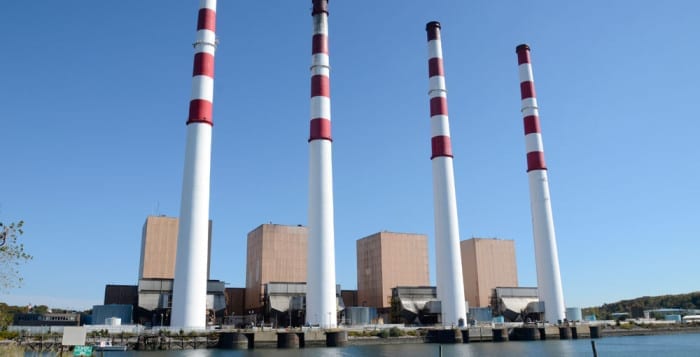Hearings close in LIPA tax suit against Huntington
The Town of Huntington presented closing arguments July 30 in LIPA’s tax certiorari case, but the post-trial proceedings are expected to continue into early 2020.
“Even as trial comes to an end, LIPA continues to offer the Town of Huntington the fair settlement accepted by the Town of Brookhaven last year,” LIPA spokesman Michael Deering said in an email. “The offer keeps school tax rates low for the Northport community while lowering energy costs for LIPA’s 1.1 million customers.”
Huntington Town Attorney Nick Ciappetta said in a telephone interview after leaving the Riverhead courtroom that the town had a good day in court.
“LIPA has the burden of proof,” he said. “I think we did a good job showing that their valuation estimates are unjustifiable and off base.”
Unlike jury trials that render a decision after closing arguments, the LIPA case is a bench trial. Decisions are rendered by a judge after post-trial deliberations.
Both LIPA and the Town of Huntington are expected to continue to file post-trial briefs to state Supreme Court Justice Elizabeth Hazlitt Emerson, which can take months, Ciappetta said. After that phase concludes, the judge can also take months to render a verdict.
LIPA states that National Grid’s taxes, which are passed along to Long Island ratepayers, should be 90 percent less than the $84 million that it currently pays to the Town of Huntington for the Northport power plant. LIPA estimates the plant’s tax valuation at $200 to $500 million, while Huntington’s assessed value on the tax code for the site is $3.4 billion.
“I think we did a good job showing that their valuation estimates are unjustifiable and off base.”
— Nick Chiappetta
As a general rule, the presumption is that the town’s tax assessment is accurate, according to the town’s outside attorney Patrick Seely, as stated in the July 30 court transcript.
LIPA’s public campaign on the Northport plant’s assessment relies largely on
comparisons.
“The trial is proceeding as expected, demonstrating that the aging Northport power plant is the highest taxed property in America, more than Disneyland and the Empire State Building combined and is significantly overassessed,” Deering said.
The Disneyland comparison, Ciappetta said, is comparing apples to oranges, since school taxation is calculated differently in different places.
The case was originally filed in 2011 and the trial pertains only to 2014. Each other year from 2011 to the present is heard separately, Ciappetta said.
If the town loses, it could owe hundreds of millions in tax refunds to LIPA and
National Grid.
LIPA’s legal expenses to challenge the taxes on the Northport plant have cost, from December 2018 to June 2019, a total of $1.2 million.
The Town of Huntington has so far paid more than $3.4 million, mainly in legal fees, defending the tax certiorari cases and pursuing a third-party beneficiary case against National Grid and LIPA, as reported by town Supervisor Chad Lupinacci (R) in April.
National Grid is a for-profit, shareholder-owned entity based in the United Kingdom. LIPA is a nonprofit state entity.







